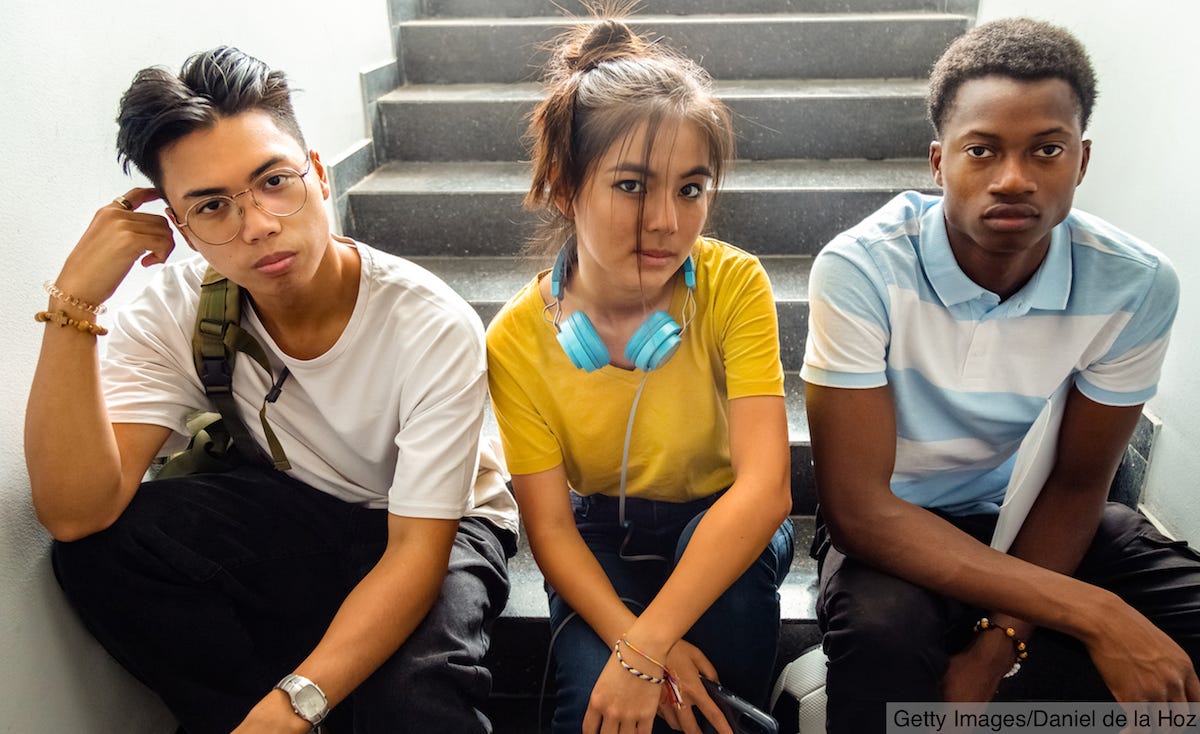“Because equity” is not a good reason to lower standards for students
Education officials across America continue to make bad decisions in the name of equity. This folly needs to stop.
Education officials across America continue to make dumb decisions in the name of equity. This folly needs to stop.
Don’t worry, this is not another conservative screed blasting “equity” as opposed to “equality.” To be sure, I sympathize with those on the right who detest the drive for “equality of outcomes”—which “equity” has come to mean for some. Regrettably, that construction conjures the specter of race preferences in college admissions and hiring; redistribution of resources via a welfare state; and a doubling-down on identity politics.
But as an O.G. education reformer, I’m comfortable with “equality of outcomes” in some circumstances. After all, the whole point of No Child Left Behind and similar policies was to narrow the achievement gap. (Look at its first page: “An Act to close the achievement gap with accountability, flexibility, and choice, so that no child is left behind.”) We should be angry that achievement scores, graduation rates, college completion, and every other educational indicator are still so highly correlated with race and class, and we should continue to work to change that fact of American life.
In other words, I respect the equity impulse, the desire to bend our system toward the needs of our most disadvantaged students—students who are disproportionately poor, Black, and Brown.
But there’s a right way and a wrong way to go about this. Leveling up is the right way. Leveling down is the wrong way. Expanding access and opportunity is the right way. Lowering standards is the wrong way.
Guess which way is gaining steam?
Let’s look at a few recent examples:
“To increase equity, school districts eliminate honors classes“
“Changes in grading and homework policies are turning education upside down“
“San Diego Unified parents to share concerns over ‘Restorative Discipline Policy’“
In each of these cases, public education leaders are trying to take the easy way out.
Start with mounting hostility to honors courses and other opportunities for advanced learning. There’s no doubt that Black, Brown, and low-income students are underrepresented in such classes, which is no surprise given the achievement gap that is apparent all the way back to kindergarten. Diversifying these classes is an important goal, and one that takes hard work. It means finding academically talented kids from underrepresented groups as early as possible—as in grades K–2—and nurturing their talents with robust “gifted and talented” programs, grade-skipping, after school enrichment—whatever it takes to help students stay on an advanced track. (No, we’re not good at this.) It also means looking for students—again, as early as possible—who may not yet test well but have the potential to be academic high-flyers with the right support.
Or districts can just get rid of honors courses.
The same thing goes for homework. Yes, it’s hard for some kids to do homework at home, given lackluster internet connections, unstable families, crowded homes, and so on. But there are obvious, age-old solutions, such as keeping schools open in the afternoon or building study halls into the school day. These could be staffed by teachers or aides and powered by schools’ robust internet access, so kids can do their homework at school—or at the Y or even in a church social hall—and get help from caring adults. But that takes finding the money, managing logistics, and convincing some adults to take on new roles or stay late.
So let’s just ban homework instead.
Likewise, with discipline. Racial disparities in suspensions and expulsions are similar in size to achievement gaps—not surprising since both stem from the same underlying cause: vastly different socio-economic circumstances. It makes sense to try to find more effective ways to correct student misbehavior than giving offenders a vacation from school. But again, there are no easy answers. Many misbehaving students need significant mental health supports, such as regular and intensive cognitive-behavioral therapy. The most violent children and teenagers need alternative placements, to keep themselves and others safe. These are challenging issues, which can bring great cost and controversy.
So instead let’s just tell teachers that they can no long send misbehaving students to the principal’s office.
Excellence is the answer
The easy-way-out approach to equity is a form of mediocrity. It’s like a high school football team that only runs the ball because it doesn’t have the skill to put together an effective pass offense. And mediocrity—not excellence—is the enemy of equity. As I wrote recently, excellence is the antidote to inequality—excellent teaching, excellent classroom management, excellent implementation, and a culture of excellence and high expectations.
Nor do the equity shortcuts work. Ban honors classes, and affluent tiger moms (of all races) will find advanced learning opportunities for their kiddos outside of school or bolt for private schools. Outlaw homework, and those same tiger moms will make their kids do Kumon or Khan Academy. Turn schools into unruly dystopias, and watch anyone with means escape the sinking ship.
And at the end of all of that, guess who suffers? The poor, Black, and Brown students that equity warriors supposedly worry about.
No more shortcuts. No more idiocy. Equity is not a good reason to lower standards—in academics, grading, homework, or discipline. There is no good reason to do those things—and none of them, in the end, advances equity.
QUOTE OF NOTE
“Eliminating honors and other options for gifted students isn’t equity. It is a punitive and harmful step that further damages the quality and appeal of public schools.”
—”It isn’t ‘equity’ to fail gifted students,” Wall Street Journal, Letter, Em. Prof. Linda Karges-Bone, March 1, 2023
THREE STUDIES TO STUDY
“Closing Poverty-Based Excellence Gaps: Supports for Gifted Students From Low-Income Households as Correlates of Academic Achievement,” by Alaa Eldin A. Ayoub, Ahmed M. Abdulla Alabbasi, and Jonathan A. Plucker, Journal for the Education of the Gifted, Volume 44, Issue 3, September 2021
“...We explored the psychological, cognitive, academic, social, and environmental supports for economically vulnerable students in the Arab culture. The sample consisted of 142 male and female students who were randomly selected from 10 middle schools in rural areas in Egypt. To assess the supports of gifted students, researchers developed a self-report questionnaire. Grade point average was used as an indicator of academic achievement. Results from cluster analysis showed that there were three profiles for low-income gifted students. Multiple regression analysis indicated that environmental, social, and psychological supports explained 44% of the variance in academic achievement. Environmental supports played the most effective role in predicting students’ academic achievement, followed by social and psychological supports.”
“The most important attributes for talented students who want to be scientists,” by János Szabó, Habil György Révész, and David J Van-DykeView, Gifted Education International, Volume 37, Issue 3, September 2021
“This study aims to assess the views of Hungarian professors/associate professors regarding important student factors at the beginning of their scientific and academic careers. Two hundred seventy-three university faculty members who work with high-achieving students (e.g., gifted, honors) completed a questionnaire regarding the attributes of gifted students. The study highlights similarities and differences among these Hungarian faculty opinions on student attributes. Data was analyzed for talent-attributes with a logistic regression to discern the differences among different scientific disciplines (medicine, humanities, economics)... The conclusions of this research highlight key attributes of Hungarian honor students identified by Hungarian university teachers and these attributes are closer than we hypothesized related across scientific disciplines.”
“Perfectionism and the Imposter Phenomenon in Academically Talented Undergraduates,” by Lindsay Ellis Lee, Anne N. Rinn, Kacey Crutchfield, Jessica K. Ottwein, Jaret Hodges, and Rachel U. Mun, Gifted Child Quarterly, Volume 65, Issue 3, July 2021
“The imposter phenomenon is characterized as difficulty internalizing success due to feelings of inauthenticity or phoniness despite contrary evidence of competence. Academically talented students in undergraduate honors programs could be more vulnerable to the imposter phenomenon as compared with other undergraduates because of experiences surrounding perfectionism and participation in highly selective programs. In this study, researchers examined the relationship between gender, honors program participation, perfectionism, and the imposter phenomenon among undergraduates. Results of a hierarchical regression analysis indicate that socially prescribed perfectionism and honors program participation relate to higher levels of imposter feelings in an undergraduate sample...”
WRITING WORTH READING
“Impact of Advanced Placement courses lost in African American studies debate,” Washington Post, Jay Mathews, March 5, 2023
“Longview [Washington State] schools look to improve equity among advanced, gifted students,” The Daily News, Sydney Brown, March 3, 2023
“It isn’t ‘equity’ to fail gifted students,” Wall Street Journal, Letter, Em. Prof. Linda Karges-Bone, March 1, 2023
“DeSantis calls for ‘open market’ to compete with Advanced Placement,” Tampa Bay Times, Jeffrey S. Solochek, February 28, 2023
“Stop punishing gifted students: War on merit, honors programs is hurting Black children, others,” Fox News, Patrice Lee Onwuka, February 27, 2023
“A study has been following ‘gifted’ kids for 45 years. Here’s what we’ve learned.“ Upworthy, Evan Porter, February 26, 2023
“Ron DeSantis’s criticism of the College Board reignites debate about AP classes,” Vox, Fabiola Cineas, February 26, 2023
“How diverse are MMSD’s [Madison Metropolitan School District, Wisconsin] standalone honors classrooms?“ The Cap Times, Scott Girard, February 24, 2023
“One-size-fits-all education doesn’t work well, but diversity advocates are hitting the accelerator,” RealClearInvestigations, Vince Bielski, February 23, 2023





This should not be a political issue, but a right and wrong issue that cuts across political lines. However, since one side (the Ds) basically control most educational institutions and thought, it is that side's belief system that is causing the problems. And that same side never holds themselves accountable nor do they admit they are wrong. And finally that same side is not the side that builds things (other than bureaucracies), but tears things down.
So, why should we expect anything different from them, when it is apparent to all that their policies failed. So they are tearing down high standards to try to achieve appearance that their policies ARE working. But when the real appearance is that they are not working, then they go political and claim it is conservatives causing problems.
”It isn’t ‘equity’ to fail gifted students,” Wall Street Journal, Letter, Em. Prof. Linda Karges-Bone, March 1, 2023.
It is not equity. Rather, it the most vile of wrong way evil.